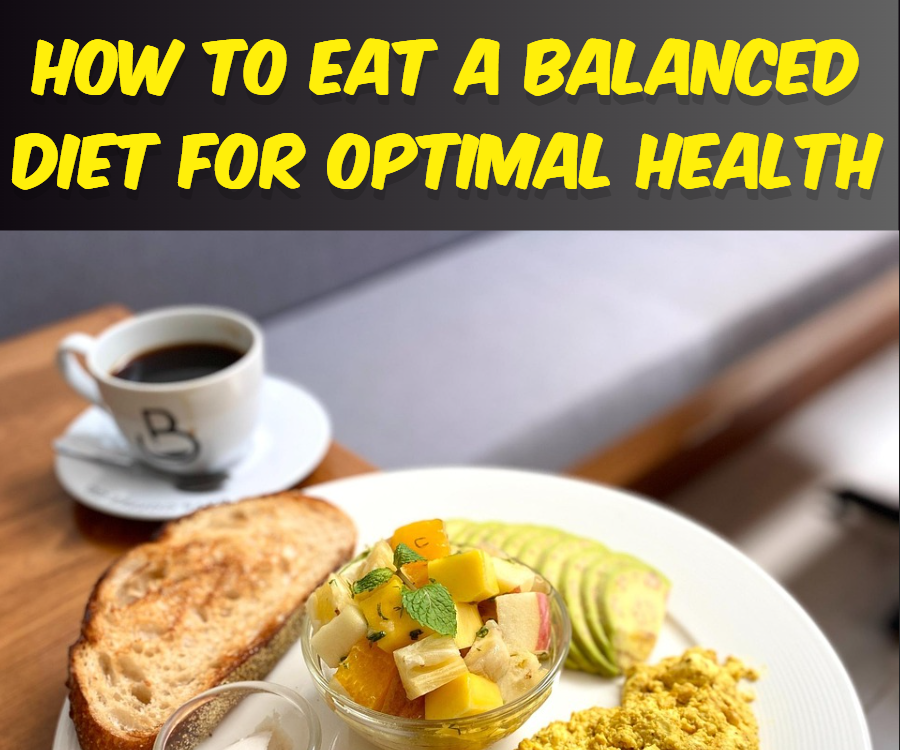
Maintaining a balanced diet is essential for overall health and well-being. A well-rounded diet provides the necessary nutrients your body needs to function properly, boost immunity, and prevent diseases. Here’s how you can eat a balanced diet for optimal health.
1. Include a Variety of Nutrient-Rich Foods
Eating a diverse range of foods ensures you get essential nutrients. Incorporate the following food groups:
- Fruits and Vegetables: Rich in vitamins, minerals, and fiber.
- Whole Grains: Provide energy and fiber, such as brown rice, oats, and whole wheat bread.
- Proteins: Lean meats, fish, eggs, beans, and nuts help with muscle growth and repair.
- Dairy or Alternatives: Sources of calcium and vitamin D for bone health.
- Healthy Fats: Found in avocados, olive oil, and nuts, essential for brain and heart health.
2. Control Portion Sizes
Eating in moderation prevents overeating and helps maintain a healthy weight. Use portion control techniques such as:
- Using smaller plates to manage portion sizes.
- Listening to your body’s hunger and fullness signals.
- Avoiding eating straight from large packages.
3. Stay Hydrated
Water is essential for digestion, nutrient absorption, and overall body functions. Aim for at least 8 glasses of water per day. Herbal teas and water-rich foods like cucumbers and watermelon can also contribute to hydration.
4. Limit Processed and Sugary Foods
Processed foods often contain excess sugars, unhealthy fats, and sodium, which can lead to health issues like obesity and heart disease. Reduce consumption of:
- Sugary drinks (soda, energy drinks).
- Fast food and packaged snacks.
- Refined carbs like white bread and pastries.
5. Plan Your Meals and Snacks
Meal planning helps maintain a balanced diet and reduces the temptation of unhealthy food choices. Tips include:
- Preparing home-cooked meals with fresh ingredients.
- Keeping healthy snacks like fruits, nuts, and yogurt handy.
- Eating at regular intervals to maintain stable energy levels.
6. Practice Mindful Eating
Mindful eating helps you develop a healthier relationship with food by focusing on the eating experience. Tips for mindful eating:
- Eat slowly and savor each bite.
- Avoid distractions like TV or smartphones while eating.
- Recognize hunger versus emotional eating.
7. Get Essential Vitamins and Minerals
Ensure you consume enough vitamins and minerals by eating a variety of nutrient-dense foods. Key nutrients include:
- Vitamin C (oranges, bell peppers) for immunity.
- Calcium (dairy, leafy greens) for strong bones.
- Iron (red meat, beans) for oxygen transport.
- Omega-3 fatty acids (fish, flaxseeds) for brain health.
Conclusion
Eating a balanced diet is a key component of a healthy lifestyle. By incorporating a variety of whole foods, staying hydrated, and practicing mindful eating, you can improve your overall well-being and prevent chronic diseases. Start making small changes today for long-term health benefits!


